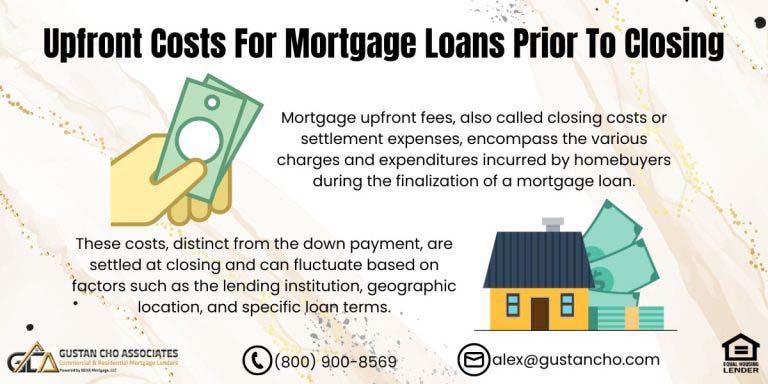Mortgage Guidelines After High School: How to Qualify for a Home Loan
Buying a home is a big dream for many, especially young adults just out of high school. You might wonder, “Can I really buy a house now?” The answer is yes. With the right steps, the right loan, and a team like Gustan Cho Associates on your side, homeownership after high school is not just possible—it’s within reach.
This guide explains the most current mortgage guidelines after high school, how to qualify with little or no work history, and smart ways to start your journey as a homeowner.
Can Yu Get a Mortgage After High School?
Yes, you can. Even if you just graduated, getting a mortgage without two years of work history is possible. Thanks to updated U.S. Department of Housing and Urban Development (HUD) rules, full-time schooling can count as work experience. This is great news for recent high school grads looking to buy their first home.
If you understand the mortgage guidelines after high school, take the right steps, and have the right support, like from the team at Gustan Cho Associates, you can get approved for a home loan sooner than you think.
Ready to Start Your Mortgage Career After High School? Experience Isn’t Required!
Contact us today to learn about mortgage guidelines and how you can get started in this rewarding field.
HUD’s Rule: School Counts as Experience
FHA loans, backed by HUD, are one of the best options for first-time buyers. In 2025, HUD continues to allow full-time school attendance to count as employment history. If you were a full-time student in high school and now have a job offer, you may qualify.
Key requirements under mortgage guidelines after high school:
- Your high school transcript or diploma
- Proof of full-time job or offer letter (must show it will continue for 3 years)
- Proof of income (like pay stubs or future salary from the offer letter)
You don’t need two years of job history to get an FHA loan if you meet these.
Watch Out for Lender Overlays
Some lenders add extra rules even if HUD says school counts as work history. These are called lender overlays. For example, some lenders still ask for two years of job history or higher credit scores.
At Gustan Cho Associates, we don’t add overlays. We go by the minimum agency guidelines. That’s why so many first-time buyers without experience get approved through us. We help you follow the real mortgage guidelines after high school, not the more rigid rules other banks add.
How to Qualify for a Mortgage After High School
Here are the exact steps to qualify under mortgage guidelines after high school:
1. Get a Full-Time Job or Job Offer
Find a full-time job or have an offer letter in hand. The letter should show your start date and expected salary. The job must be expected to last at least 3 years
2. Build or Improve Your Credit
Start working on your credit score. Here are a few ways:
- Get a secured credit card
- Request that a parent make you an authorized user.
- Always pay bills on time
A score of 580 is the minimum for FHA loans, but higher is better.
3. Save for a Down Payment
FHA loans only require 3.5% down if your credit score is 580 or higher. Save early. Create a budget and set aside money from every paycheck.
4. Organize Your Documents
You’ll need:
- High school diploma or GED
- Job offer or pay stubs
- Bank statements
- ID and Social Security card
Following mortgage guidelines after high school means being organized and ready to show you’re serious about buying.
5. Get Pre-Approved
Work with a lender like Gustan Cho Associates, who knows the rules and won’t add extra hurdles. A pre-approval will show you how much house you can afford.
First-Time Homebuyer Programs
Some programs help buyers like you. Here are a few that align with mortgage guidelines after high school:
- FHA Loans: Low down payment, flexible credit rules, school counts as experience.
- VA Loans: No down payment, great if you or your parent served in the military.
- USDA Loans: No down payment if buying in a rural area.
- Conventional Loans: You may work with a co-signer if your credit is strong.
Some states also offer grants or assistance programs to help with down payments or closing costs.
No Experience? No Problem! Start Your Mortgage Career After High School!
Reach out now to learn how we can help you start your career and gain the skills needed to succeed.
What If You Have No Credit History?
Many graduates may find that they don’t have an established credit history, which is perfectly fine. They can utilize non-traditional forms of credit to start building their profiles. For instance, rent payment history, cell phone bills, and utility bills can all be considered as indicators of creditworthiness. Checking your bank account statements can help you build credit. To build credit quickly, start with a secured credit card. Good mortgage practices after high school can help you create a strong financial future.
Using a Co-Signer to Qualify
If your job is new or your credit is thin, a co-signer (like a parent) can help. Their income and credit can make you look stronger to lenders. This doesn’t mean they’ll own the house—just that they’re backing you up.
Timeline for Getting a Mortgage After High School
Month 1: Get a job, secure your offer letter, open a credit account
Month 2: Save money and keep building credit. Contact Gustan Cho Associates for pre-approval.
Month 3: Begin house hunting with your pre-approval letter
Month 4: Make an offer, get an inspection, finalize your loan, and close!
With the right help, mortgage guidelines after high school can work in your favor.
Emily’s Story: Bought Her First Home at 19
Emily graduated at 18, started a job at a local hospital, and got added to her mom’s credit card to build history. She worked with Gustan Cho Associates, submitted her job offer letter and bank statements, and used an FHA loan. She closed on her first home just a year out of high school.
That’s the power of knowing the right mortgage guidelines after high school.
Building a Strong Financial Foundation
- Set a budget: Know your income and spending.
- Save regularly: Put aside money every paycheck.
- Learn about money: Take free online courses or talk to a financial advisor.
Being financially ready is a key part of successfully following mortgage guidelines after high school.
Tips to Overcome Common Challenges
Overcoming common financial challenges is easier with the right strategies. If you lack credit, consider obtaining a secured credit card or requesting to become an authorized user on another person’s account to help establish your credit history. Finding a full-time job or getting a job offer letter can improve your financial stability if you are unemployed.
To boost your savings, develop a savings strategy and monitor your progress consistently to make sure you’re heading in the right direction. If strict lenders make it hard to get approved, look for a no-overlay lender like Gustan Cho Associates, who might offer more flexible terms.
Turn Your Dream into a Career
Do you love real estate and helping people? You can start a career in mortgages right after high school. Gustan Cho Associates is hiring and will train the right people who want to help others buy homes. No college is required—just motivation.
Reach out to learn more!
Final Thoughts: Start Your Homeownership Journey Now
Don’t wait for the “perfect time.” If you’re ready to take your first steps, there are real options and support. Mortgage guidelines after high school are designed to help you start early.
At Gustan Cho Associates, we help people daily who’ve been told “no” by other lenders. Whether you have no credit, have just started your job, or are worried about income, we know the rules and can help you qualify.
Call to Action
Dreaming of owning your first home right after high school? We can help make it happen. Contact Gustan Cho Associates at 800-900-8569 or email us at gcho@gustancho.com. You can also text for a quicker response. Let’s turn your dream into keys in your hand.
If you have any questions about mortgage guidelines after highscgiild, please contact us at 800-900-8569. Text us for a faster response. Or email us at alex@gustancho.com. The team at Gustan Cho Associates is available 7 days a week, on evenings, weekends, and holidays.
This blog about the Mortgage Guidelines After High School With No Work Experience was updated on July 17th, 2024.
New to the Mortgage Industry? Start Your Career Right After High School!
Contact us now to learn how you can get started and gain valuable experience in this fast-growing field.
Frequently Asked Questions About Mortgage Guidelines After High School:
Q: Can I Get a Mortgage Right After High School?
A: Yes! You can qualify under mortgage guidelines after high school if you have a full-time job or a job offer and meet basic credit and income rules.
Q: Do I Need Two Years of Work History to Buy a Home After High School?
A: No. FHA loans allow full-time school attendance to be work history under mortgage guidelines after high school.
Q: What Documents do I Need to Apply for a Mortgage After High School?
A: You’ll need your high school diploma or GED, job offer or pay stubs, bank statements, ID, and Social Security card. These are all part of the mortgage guidelines after high school.
Q: What Credit Score do I Need to Get a Mortgage After High School?
A: A 580 credit score is the minimum for FHA loans, but having a higher score can help. Building credit early is part of smart mortgage guidelines after high school.
Q: What if I Don’t Have Any Credit Yet?
A: It’s okay. You can build your credit using a secured credit card or being added as an authorized user on someone else’s credit card. These steps help meet the requirements for a mortgage after you finish high school.
Q: Can I Use a Co-Signer to Qualify for a Mortgage?
A: Yes. A parent or guardian can co-sign to help you qualify. Their income and credit help support your application under the mortgage guidelines after high school.
Q: Are There Special Loans for First-Time Buyers Just Out of High School?
A: Yes! FHA, USDA, and VA loans are great choices. They’re designed to help first-time buyers meet the mortgage guidelines after high school.
Q: Do All Lenders Follow the Same Mortgage Rules?
A: No. Some lenders add extra rules called overlays. To avoid those, work with a lender like Gustan Cho Associates, which sticks to the basic mortgage guidelines after high school.
Q: How Can I Save for a Down Payment While Still in School or Starting Work?
A: Start small and save regularly. Set a budget and put away money from each paycheck. Saving is a big part of following mortgage guidelines after high school.
Q: How Long Does Buying a Home After High School Take?
A: Having a job, credit, and savings can enable you to purchase a home in just a few months. The schedule depends on how swiftly you meet the mortgage requirements after high school.
This blog about “Mortgage Guidelines After High School Without Experience” was updated on June 27th, 2025.
Dream of Working in Mortgages After High School? We’ll Help You Get Started!
Reach out now to learn more about the mortgage guidelines and how you can begin your career.









